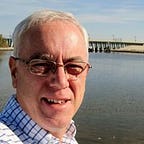Theory of Elasticity — Augustine Louis Cauchy
Augustine Louis Cauchy is remembered most, in the applied sciences, for his theory of elasticity, which describes the internal stress and strains in a solid body. Cauchy also extended the range of mathematics beyond the limits of the rational and irrational to encompass also the imaginary numbers. Cauchy’s career covered a wide range of topics, from the foundations of calculus, to group theory, analytic functions of complex variables and the theory of waves. With an eye to the program of Laplace and Lagrange to cast mathematics as the true language of physical science, Cauchy sought to build a rigorous foundation under the applied mathematics first developed by Newton and extended by Delambre, Lagrange, Laplace, Poisson, Fourier and others. It was Cauchy, for example, who defined the concept of the limit as applied in calculus. After meeting Cauchy 1826, the young Norwegian mathematician Niels Abel commented that “Cauchy is the only one occupied with pure mathematics. Poisson, Fourier, Ampere, etc., busy themselves exclusively with magnetism and other physical subjects.”
Among his peers Cauchy was notorious for his rigid inflexibility. Uncharacteristically for a member of Paris’s scientific community, Cauchy was an ultra-conservative, an enthusiastic supporter to the unpopular king Charles X, and a devout Catholic. Colleagues in the Academy of Science did not welcome Cauchy’s efforts at religious and moral instruction, no matter how sincere, and they sometimes found Cauchy’s attention to rigor disconcerting as well. Laplace sweated through at least one of Cauchy’s lectures unsure whether the mathematics of the “System du Monde” and the “Mécanique céleste” — Laplace’s masterpieces — would pass Cauchy’s rigorous scrutiny.
Cauchy did not spare himself from the unpleasant consequences of rigorous adherence to principles. Following the 1830 revolution and abdication by Charles X, Cauchy refused to swear the oath of allegiance required by constitutional monarch Louis-Phillipe. Instead, Cauchy relinquished his teaching posts and followed the deposed Charles X into exile. For several years the foremost mathematician of his age served as a glorified nanny to the 13-year-old son of Charles X. Eventually the political climate calmed enough for Cauchy to return to Paris in 1838 and take a provisional position at the Bureau of Longitude. Cauchy was able to resume his former posts after the revolution in 1848 removed king Louis-Phillipe, who had refused to appoint Cauchy to a full-time position.
Cauchy’s parting words to this life were, “Men pass away, but their deeds abide.” Augustine Louis Cauchy is one of the 72 scientists and engineers named on the Eiffel Tower.
